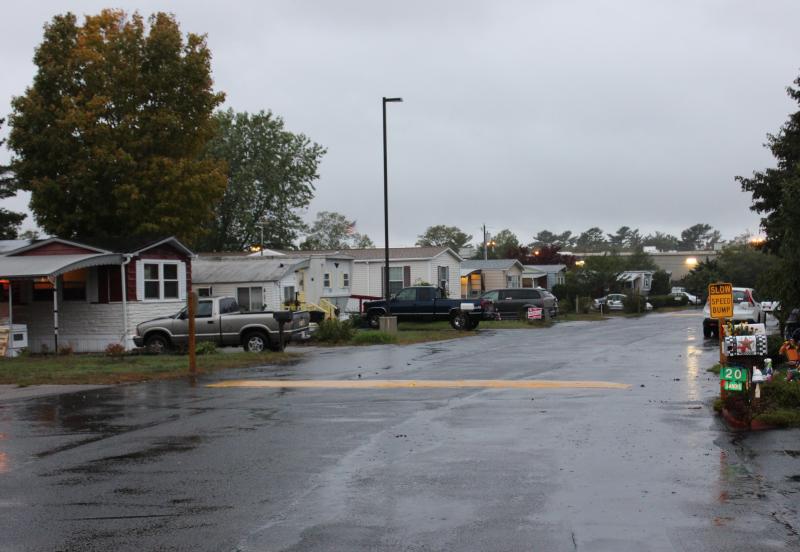State pressured to count mobile homes as affordable housing
A state law that allows developers to skirt local regulations in communities where less than 10 percent of the housing stock is considered "affordable" has troubled Wareham officials for years. Because the state refuses to include mobile homes in its definition of "affordable housing," the town falls several percentage points short of the 10 percent.
For the second time in as many years, Town Meeting voters will be asked to petition state legislators to carve an exception in Chapter 40B for Wareham mobile homes allowing them to be counted as affordable housing.
Chapter 40B, a state housing law, was designed to boost the number of affordable units across the state by easing the permit process in cities and towns for housing projects.
If the number of affordable homes in a town is below the state’s threshold, which is 10 percent of total housing units, then developers may bypass some local zoning laws and build projects more densely than zoning bylaws allow. Since 40B was enacted in 1969, Wareham has never met that quota. The result has been the construction of 19 developments in town built under 40B that offer affordable housing options.
Frustrated with the issue, Selectmen drafted a petition that was passed at Town Meeting in 2015 and sent to the legislature. It was never voted on. Instead, lawmakers sent it to committee for “study” which essentially killed the bill – again.
That decision left Selectmen wondering why Beacon Hill ignored their request.
“In theory, the petition should just go through the House and Senate without issue,” said Selectman Alan Slavin. “It got buried.”
Slavin noted the bill to be voted on this month is identical to the one approved at last year’s Town Meeting.
Without the exception, the number of affordable homes in Wareham is 7.7 percent, according to a report by the Department of Housing and Community Development released in 2014. With the exception, that number would climb to an estimated 11 percent and allow Wareham to hold affordable housing developments to the same standards as any other project.
State Rep. Susan Williams Gifford said designating mobile homes as affordable housing would provide town officials a greater say in Wareham’s future.
“Wareham has struggled for years with the threat of 40B developers basically preying on the town because we have a lot of build-able land and we have good infrastructure,” said Gifford. “Those are the things developers need and it’s made the town a prime target.”
Gifford said the town is forever playing catch up to reach the 10 percent threshold. As more homes are the built the town’s percentage of affordable housing essentially remains the same, even as affordable homes are added. Of the town’s 9,880 year-round housing units, 759 units are designated affordable.
“When you add more housing units in town you’re never going to reach that percent of affordable housing stock,” said Gifford.
The issue is one Gifford has been trying to improve since she was first elected in 2002. Every year since then, she’s filed the same bill with the legislature that would count mobile and manufactured homes as affordable under 40B. And every year, it’s been ignored.
According to Gifford, support from groups such as the Citizens’ Housing and Planning Association (CHAPA) is part of the reason the exception has been shot down.
“I think there’s a misconception among people as to why there doesn’t seem to be an appetite to reform 40B,” said Gifford. “Lobbyists for large urban housing champions, specifically I’m referring to CHAPA…who don’t want to see any changes to 40B because they see it as weakening the law.”
The proposed change in 40B wouldn’t necessarily alter how cities count affordable housing units, said Gifford. She said mobile homes aren’t generally found in urban areas, but are prevalent in suburban ones such as Wareham.
The number of mobile homes in town increased by .3 percent over a 10-year period according to data from the U.S. Census Bureau. In 2000, the number of mobile homes in town was 926 (8.7 percent of total housing) and was 1,050 (9 percent) by 2010.
“To include mobile and manufactured homes in 40B has nothing to do with Boston, it has nothing to do with Lowell, it has nothing to do with Springfield,” said Gifford. “I believe these large housing conglomerates are the ones pushing the resistance to changes in the Chapter 40B law.”
Should Town Meeting voters pass the petition, the bill will again be sent to the Joint Committee on Housing for a public hearing where it will either be recommended for approval, recommended to not be approved or sent to committee for study. As she has for the past 14 years, Gifford has also filed her own 40B bill that would take effect statewide if approved.
Gifford said she hopes this is the year that 40B reform becomes a reality.
“The support is growing and I have to thank the Wareham Board of Selectmen for being part of that,” said Gifford. “It’s time we had some very meaningful discussion on reforming 40B.”
Wareham Town Meeting is scheduled for Oct. 24 at 7 p.m. in the Wareham High School auditorium.












